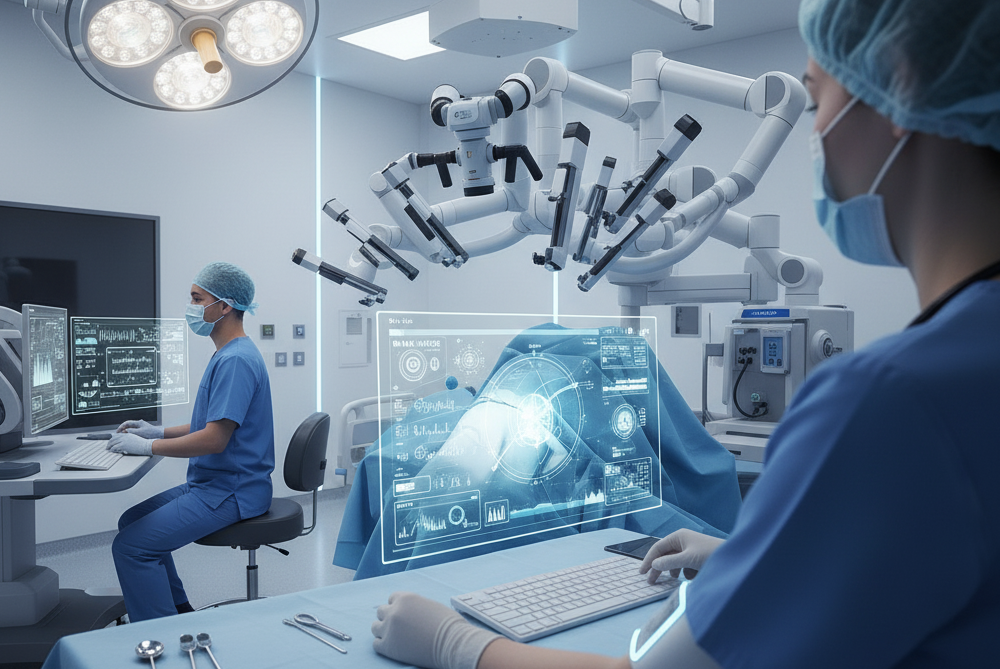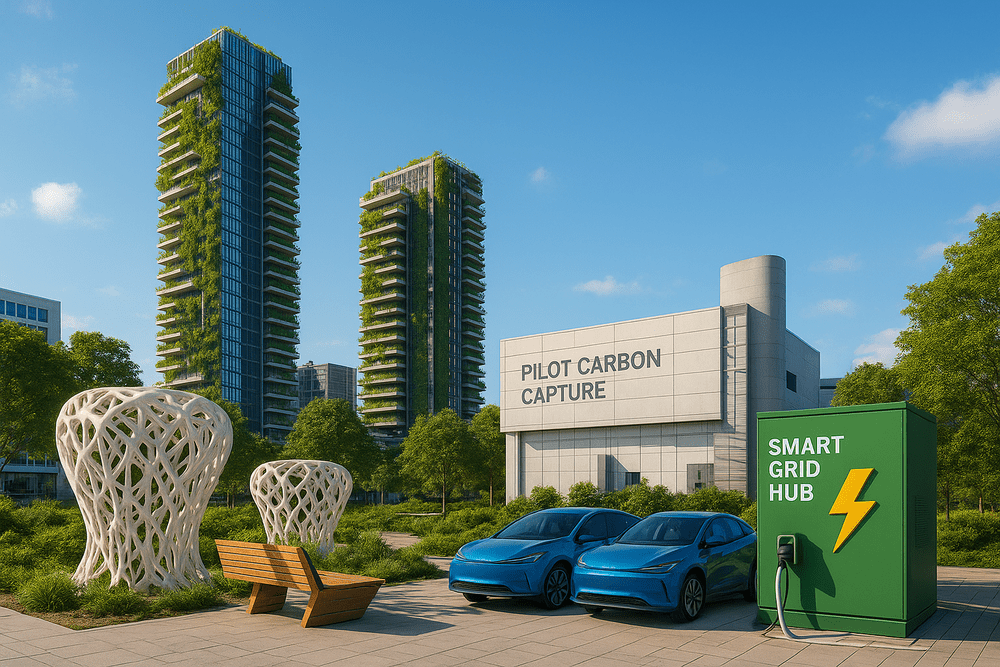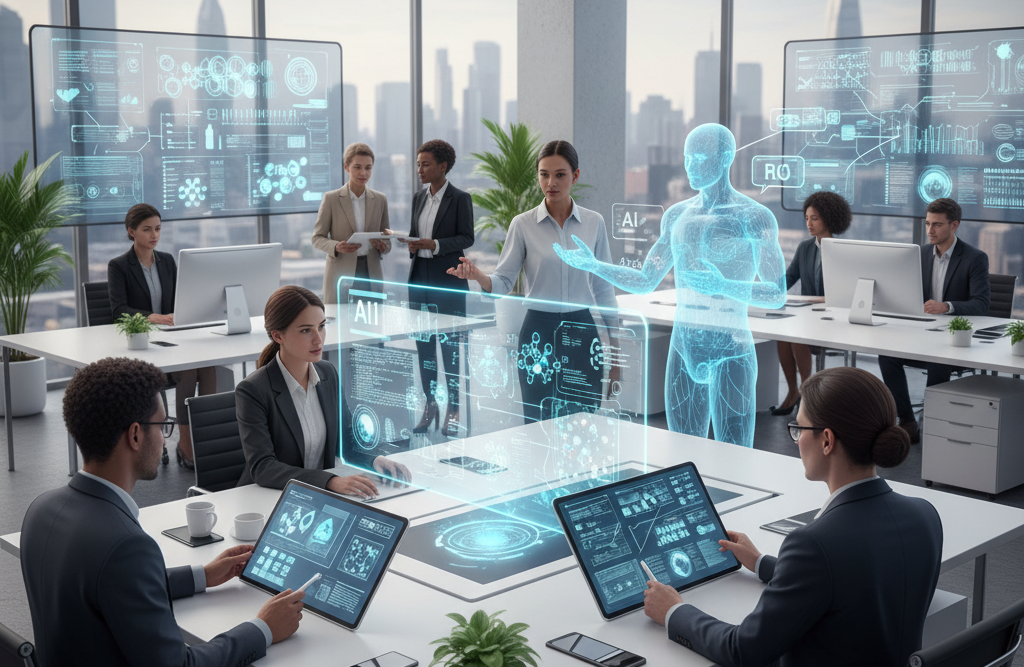How AI Will Revolutionize Everyday Life in 2026
Zoe Chapman
2025-10-01
6 min read

As we stand at the threshold of 2026, artificial intelligence is no longer a distant concept confined to science fiction movies or research laboratories. It has quietly woven itself into the fabric of our daily routines, transforming how we work, learn, heal, and connect with the world around us. The AI revolution isn't coming—it's already here, reshaping every corner of human experience in ways that seemed impossible just a few years ago.
Healthcare Gets Personal and Predictive
The healthcare landscape of 2026 represents perhaps the most dramatic transformation driven by AI technology. Medical diagnostics have become incredibly precise, with AI systems now capable of detecting diseases like cancer, heart conditions, and neurological disorders months or even years before traditional methods would identify them. Wearable devices continuously monitor vital signs, sleep patterns, and activity levels, feeding this information to AI algorithms that can predict health issues before symptoms appear. Personalized medicine has moved from concept to reality. AI analyzes individual genetic profiles, lifestyle factors, and medical histories to create treatment plans tailored specifically to each patient. This approach has dramatically improved treatment success rates while reducing adverse reactions to medications. Virtual health assistants powered by AI can now conduct preliminary consultations, monitor chronic conditions, and provide real-time health coaching, making quality healthcare more accessible than ever before. Surgical procedures have been revolutionized through AI-assisted robotics that enhance precision and reduce recovery times. These systems can perform microsurgery with superhuman accuracy while providing surgeons with real-time guidance based on analysis of thousands of similar procedures. The result is safer operations, better outcomes, and shorter hospital stays for patients worldwide.
Education Becomes Truly Individualized
The one-size-fits-all approach to education is rapidly becoming obsolete as AI creates learning experiences tailored to each student's unique needs, pace, and learning style. Intelligent tutoring systems can identify exactly where a student struggles and adapt explanations, examples, and practice problems accordingly. This personalized approach has shown remarkable results in improving learning outcomes across all age groups and subjects. AI-powered language learning platforms have made acquiring new languages more natural and effective than traditional classroom methods. These systems use speech recognition, natural language processing, and adaptive learning algorithms to create immersive experiences that adjust to individual pronunciation patterns and comprehension levels. Students can now practice conversations with AI tutors that provide instant feedback and guidance. Educational content creation has been transformed as well. AI can generate practice problems, create interactive simulations, and even develop entire curricula based on the latest research and pedagogical best practices. Teachers now spend less time on administrative tasks and more time providing the human connection and mentorship that technology cannot replace.

Transportation Enters the Autonomous Era
The roads of 2026 look fundamentally different from those of just a few years ago. Autonomous vehicles have moved beyond pilot programs to become a common sight in cities worldwide. These vehicles communicate with each other and with smart traffic infrastructure to optimize routes, reduce congestion, and virtually eliminate traffic accidents caused by human error. Ride-sharing has evolved into a seamless AI-orchestrated system where vehicles anticipate demand, position themselves optimally, and coordinate with public transportation to provide efficient, cost-effective mobility solutions. Many urban residents have abandoned car ownership entirely, relying instead on these intelligent transportation networks that provide better service at lower cost. Delivery systems have been revolutionized through autonomous drones and ground-based robots that can navigate complex urban environments. Same-day delivery has become the standard for most goods, with AI optimizing delivery routes and schedules to maximize efficiency while minimizing environmental impact.
Personal Productivity Reaches New Heights
AI assistants have evolved far beyond simple voice commands to become sophisticated productivity partners that understand context, anticipate needs, and proactively offer solutions. These digital companions can schedule meetings, prepare for presentations, manage email, and handle routine tasks while learning from user preferences and behaviors to become increasingly helpful over time. Smart homes powered by AI have become truly intelligent environments that adapt to residents' routines and preferences automatically. Lighting, temperature, security, and entertainment systems work together seamlessly, creating optimal living conditions while maximizing energy efficiency. These systems can predict when residents will arrive home and prepare the environment accordingly. Financial management has been transformed through AI systems that analyze spending patterns, investment opportunities, and market trends to provide personalized financial advice. These systems can automatically optimize budgets, suggest savings opportunities, and even execute investment strategies based on individual risk tolerance and financial goals.
The Workplace Transforms
Professional environments have been reshaped as AI handles routine tasks, allowing humans to focus on creative problem-solving, relationship building, and strategic thinking. Document creation, data analysis, and research tasks that once consumed hours now take minutes with AI assistance. This shift has led to increased job satisfaction as workers spend more time on meaningful, high-value activities. Remote work has become more effective through AI-powered collaboration tools that facilitate seamless communication, project management, and knowledge sharing across distributed teams. Virtual meeting assistants can automatically generate meeting summaries, track action items, and ensure follow-up tasks are completed.
Looking Ahead with Cautious Optimism
As AI continues to revolutionize everyday life in 2026, we're witnessing a fundamental shift in how humans interact with technology and each other. The key to maximizing these benefits lies in thoughtful implementation that prioritizes human values, privacy, and equity. While challenges around data security, job displacement, and ethical AI use remain important considerations, the potential for AI to improve quality of life, expand human capabilities, and solve complex global problems has never been greater.



